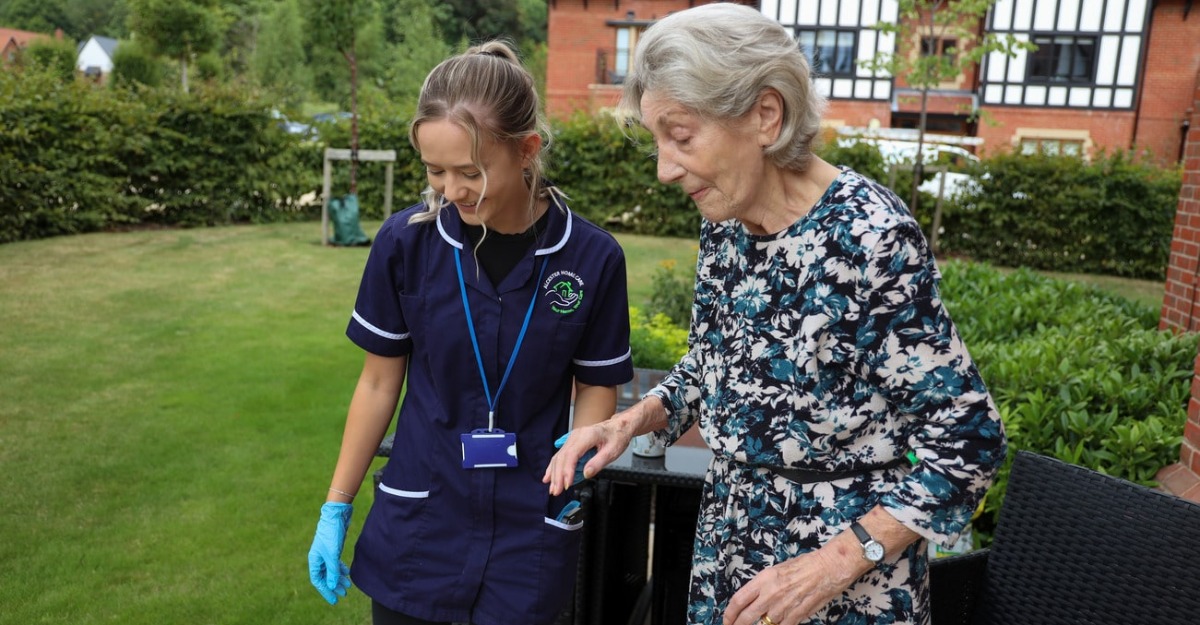As a GP in the UK, I’ve seen countless cases of dedicated individuals caring for their ill, infirm, or elderly relatives. In most cases, temporary carers often find themselves taking on an increasingly demanding role, often for lengthy periods.
While this is admirable, it’s crucial to understand that long-term care is more akin to running a marathon than a sprint. Time and time again I have seen the effects of burnout caused by the physical and psychological impact of caring.
This is why considering respite care is not just beneficial, but often necessary for the wellbeing of both the carer and the person being cared for.
The Effects of Carer Fatigue
Carer fatigue is a very real and serious issue that I encounter frequently in my practice.
It’s a state of physical, emotional, and mental exhaustion that can creep up on carers who don’t take adequate breaks. Symptoms can range from mild to severe, with most impacting wider aspects of the carer’s life.
Symptoms can include:
- Constant tiredness
- Headaches
- Changes in appetite or sleep patterns
- Feelings of anxiety or depression
Left unchecked, this fatigue can lead to burnout, which may last for extended periods and significantly impact the carer’s ability to provide effective care.

The Importance of Care Relief
The effects of caring without breaks or respite can be detrimental to a carer’s health and well-being. I’ve seen carers develop chronic health conditions, experience a decline in their mental health, and become socially isolated.
These issues not only affect the carer but can also indirectly impact the quality of care they’re able to provide.
It’s important to remember that seeking respite care doesn’t mean you’re failing as a carer. On the contrary, it’s a proactive step to ensure you can continue providing the best possible care in the long run.
Respite care offers a temporary break, allowing carers to rest, recharge, and attend to their own needs.
How Does Respite Care Work?
One misconception I often encounter is that respite care means handing over all responsibilities to paid carers.
This isn’t necessarily the case.
Respite care can take many forms and can be tailored to suit individual needs and circumstances. It can involve the carer taking a full day, week, or even a month off from care duties every so often, there is no contract or commitment to use the service again.
Alternatively, it can run alongside the family carer’s efforts, with professional carers providing support during specific times of the day.
For instance, you might arrange for home carers to handle the early morning or late evening calls, allowing you to have uninterrupted sleep or personal time.
This approach can significantly reduce the daily stress and physical toll of caregiving. Or you could schedule regular respite periods where professional carers take over completely, giving you extended breaks to recharge, travel, or focus on other aspects of your life.
Finding What Works For You
Choosing something that works for you and your loved one or relative should always take priority.
I’ve found that a blend of family care and professional support often works best.
This approach allows family carers to have regular breaks while ensuring their loved ones receive consistent, high-quality care.
You might consider having a professional carer come in for a few hours each week to allow you time for self-care activities or social engagements.
Alternatively, respite care can be used for a few weeks at a time to give yourself an extended break to recharge your batteries.
It is important to work with your care provider to establish the best arrangement for your circumstances. Speak to one of our team for free care advice to discover the most appropriate care service and coverage for you.

The Benefits of Respite Care
Respite care doesn’t just benefit the carer. The person being cared for can also gain from interacting with different people and experiencing varied care approaches.
This can stimulate them mentally and socially, potentially improving their overall well-being.
In my years of practice, I’ve seen how regular respite can transform the caregiving experience.
Carers who take regular breaks often report feeling more patient, less stressed, and better able to handle the challenges of caregiving. They’re also more likely to maintain their own health and relationships, which is crucial for long-term caregiving sustainability.
Final Thoughts
Remember, caring for a loved one is a marathon, not a sprint.
Just as a marathon runner needs to pace themselves and take on nutrition to complete the race, carers need to take regular breaks and look after their own well-being to provide the best care possible over the long term.
If you’re a carer feeling overwhelmed, please don’t hesitate to speak with your GP or local social services about respite care options, alternatively, our team are always available to offer free advice on the most appropriate care services for your circumstances.
There’s support available, and taking steps to prevent burnout is one of the most important things you can do for both you and the person you’re caring for.
Whether it’s a few hours of support each day or week, or longer periods of respite, finding the right balance can make all the difference in your caregiving journey.
